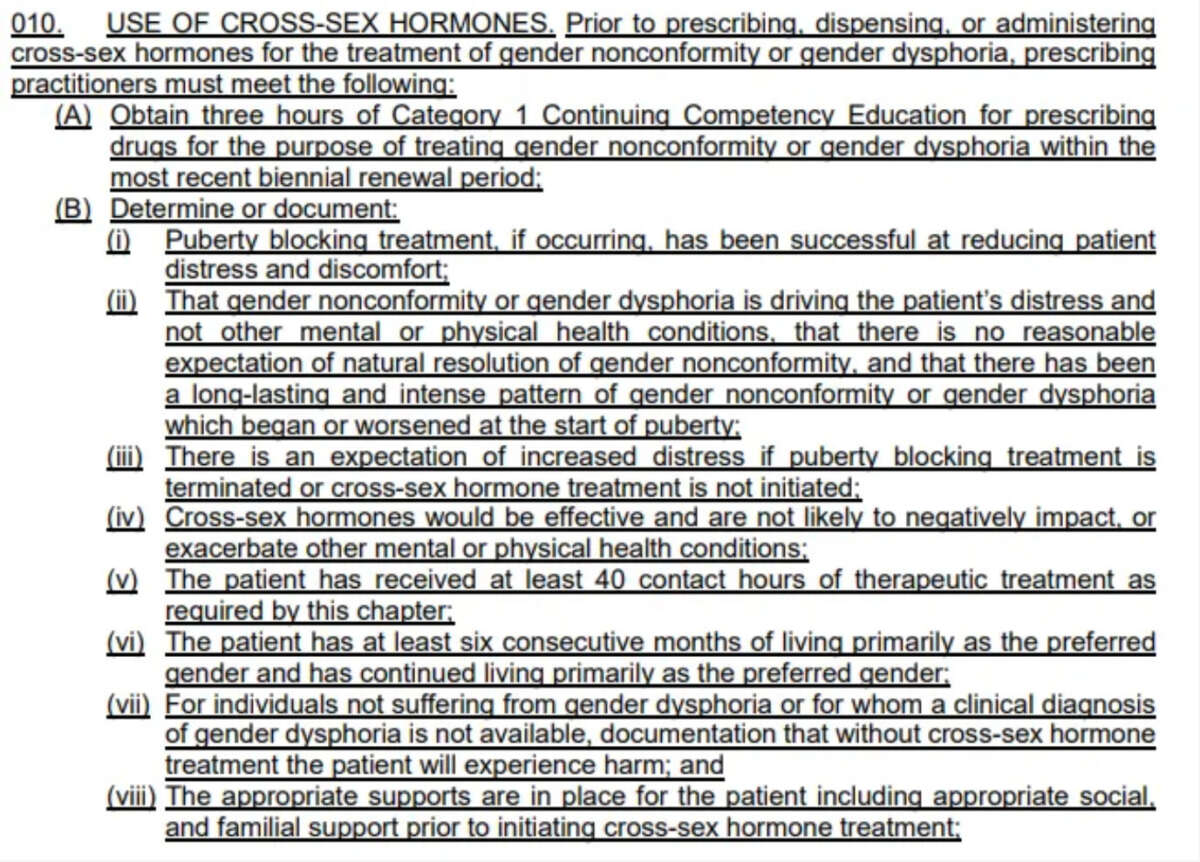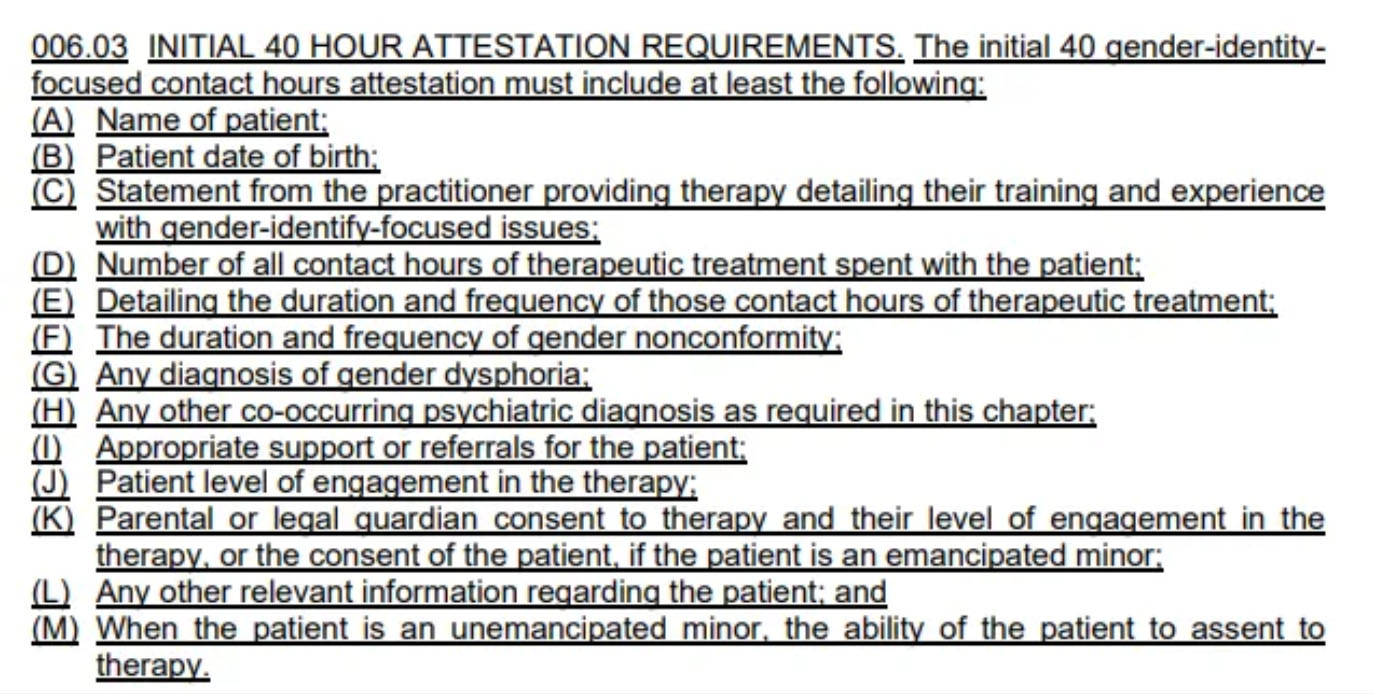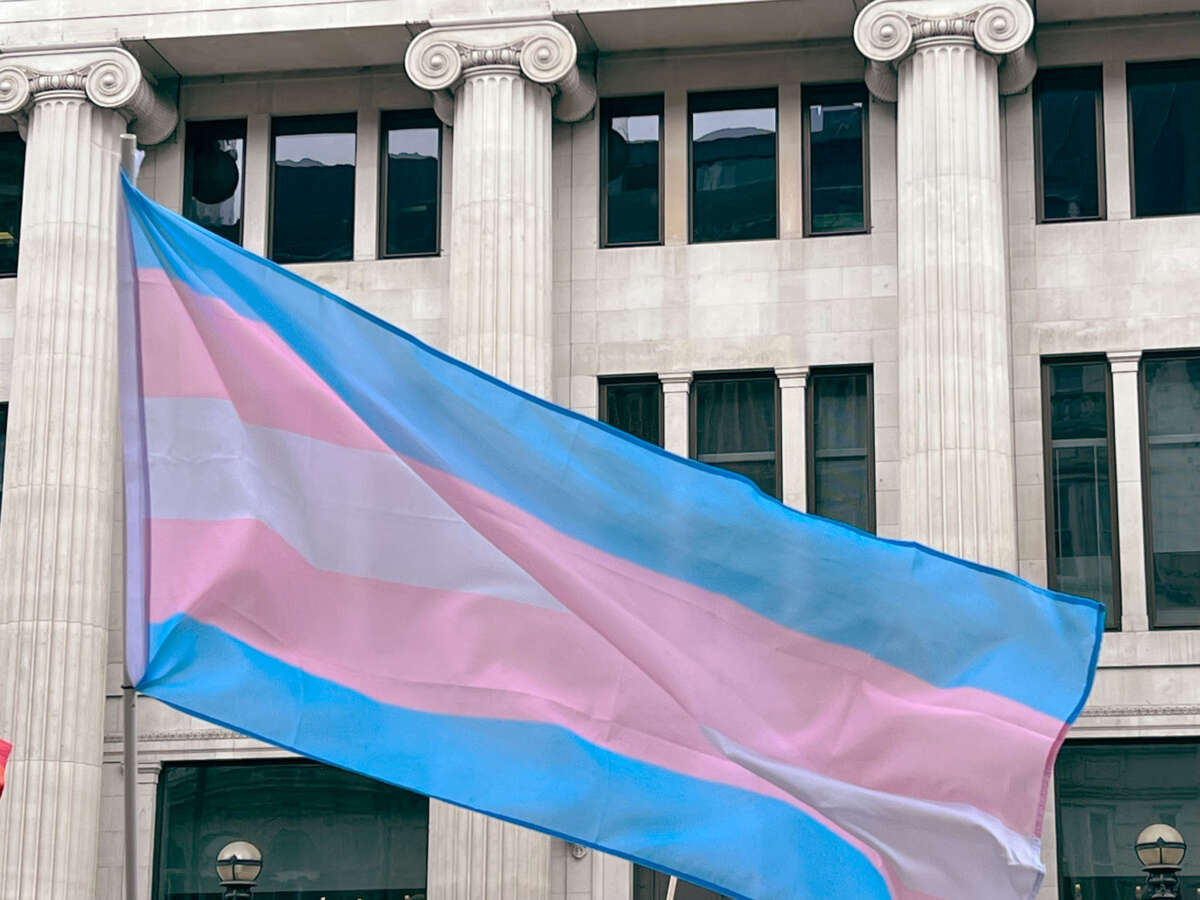Truthout is an indispensable resource for activists, movement leaders and workers everywhere. Please make this work possible with a quick donation.
A new set of regulations released on Monday morning by the Nebraska Department of Health and Human Services spells out several new restriction on transgender youth in the state. The restrictions, allowed under a new law passed by the Nebraska legislature this year, would curtail gender affirming care for those under the age of 19, the age of majority in the state. While several restrictions are poised to create hurdles for those seeking care, one in particular stands out as especially troubling: a mandate that all trans youth seeking treatment undergo five months of therapy that is “not in a gender affirming context,” a nod to a novel form of conversion therapy championed by those opposed to gender-affirming care.
The new regulations delineate a series of hurdles that transgender youth must navigate to access care. One rule, for instance, mandates that trans youth must have been fully out and living as their gender identity for six months prior to treatment, a throwback to an archaic and decades-old standard of care. This standard was discarded following criticisms that requiring transgender individuals to present as their gender identity, before hormones could facilitate such presentation, was psychologically painful and not linked to improved outcomes. Another stipulation demands that only a trans youth’s parents may collect their prescription, which must be labeled for gender dysphoria. Additionally, these youth must be handed obligatory medical misinformation forms, proclaiming the medication to be risky and promoting “alternatives” to care.
Most troublesome, however, is a particular regulation on the mental healthcare of transgender youth. The document states that transgender youth must obtain 40 hours of therapy, with a maximum of two such hours per week, that is “not in a gender affirming context.” Read literally, this could involve forcing transgender youth to be misgendered and their old names used for months before obtaining care. Such a regulation may put therapists and providers in legal jeopardy merely for practicing the basic respect and dignity of their patients. The guidelines also state that the therapy has to probe for other “mental and physical health conditions” that the guidelines claim may be “driving the patients distress.”
You can see the guidelines around therapy here:



Collectively, these guidelines champion a new form of conversion therapy dubbed “Gender Exploratory Therapy.” Despite its innocuous name, this therapy seeks to explore all possible causes for a transgender person to experience gender dysphoria other than genuine transness. It’s important to highlight that the patient being transgender is never deemed an acceptable conclusion. Treatments are perpetually dangled just beyond reach until the trans youth believes they are not actually transgender, that too much time has elapsed and puberty has induced too many changes for a successful transition, or they turn 18 and age out of care.
Mirroring crisis pregnancy centers, these tactics are deployed under the pretense of “alternative care” and “neutral treatment,” despite the deception inherent in the care provided. The duplicity surrounding gender exploratory therapy is evident in its founders, its practitioners, and on the Gender Exploratory Therapy Association’s (GETA) own website. One of GETA’s co-founders, Lisa Marchiano, was implicated in leaked emails of a working group seeking to ban gender-affirming care nationwide. In these correspondences, she employs the far-right doxxing website Kiwifarms to relay information about a transgender activist to Fox News. Although the GETA website presents the practice as “care without pushing a political agenda,” it conspicuously displays a brief aimed at blocking Title IX anti-discrimination protections for transgender youth. Evidently, “value neutral, non-ideological care” is a misnomer for this form of therapy.
Many accounts of patients going through gender exploratory therapy can be found in a widely-viewed thread soliciting patients experiences, and the practice of delaying transition through the associated practice of “watchful waiting” is is explicitly condemned by the American Academy of Pediatrics. Because of widespread harm caused by this kind of therapy, the practice has been recognized as unethical in medical ethics journals.
Collectively, these new guidelines were put in place after the passage of LB547, the “Let Them grow Act.” Fittingly with the comparisons to the way these kinds of practices are levied at those seeking abortions, the bill was a combination bill banning abortion up to 12 weeks as well while also containing the provisions allowing for these kinds of restrictions on trans youth. It passed the Nebraska legislature by a narrow supermajority after Democrats filibustered the law for three months.
These new policies were developed under the guidance of the state chief medical officer, Dr. Timothy Tesmer, an appointee by Governor Jim Pillen, who called gender affirming care “Lucifer at its finest.” These policies were released on an emergency basis pending the adoption of permanent regulations and will go into effect immediately. A hearing is planned on November 28th on the permanent rules for gender affirming care under the new law.
This piece was republished with permission from Erin In The Morning.
A terrifying moment. We appeal for your support.
In the last weeks, we have witnessed an authoritarian assault on communities in Minnesota and across the nation.
The need for truthful, grassroots reporting is urgent at this cataclysmic historical moment. Yet, Trump-aligned billionaires and other allies have taken over many legacy media outlets — the culmination of a decades-long campaign to place control of the narrative into the hands of the political right.
We refuse to let Trump’s blatant propaganda machine go unchecked. Untethered to corporate ownership or advertisers, Truthout remains fearless in our reporting and our determination to use journalism as a tool for justice.
But we need your help just to fund our basic expenses. Over 80 percent of Truthout’s funding comes from small individual donations from our community of readers, and over a third of our total budget is supported by recurring monthly donors.
Truthout has launched a fundraiser to add 379 new monthly donors in the next 6 days. Whether you can make a small monthly donation or a larger one-time gift, Truthout only works with your support.
